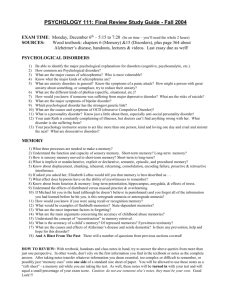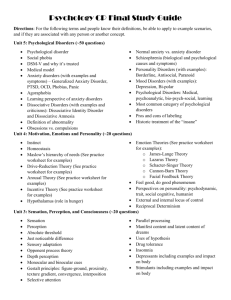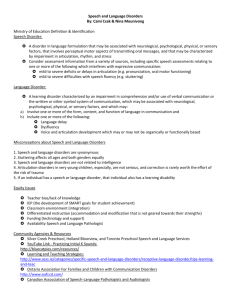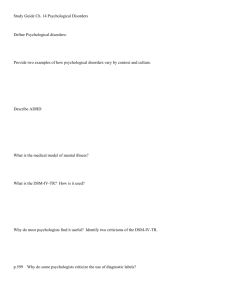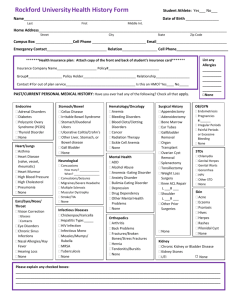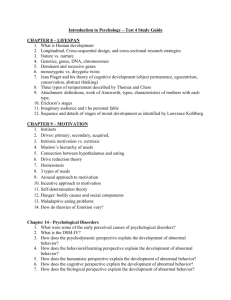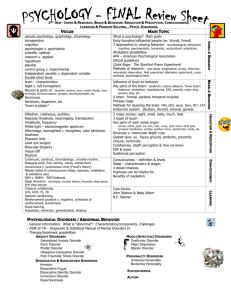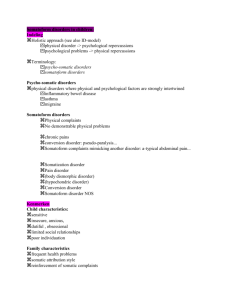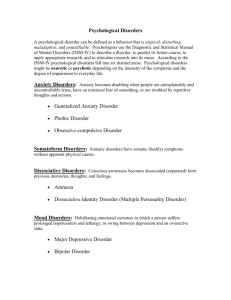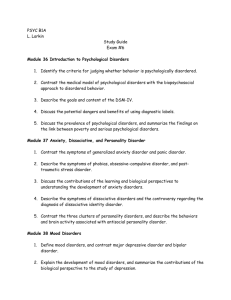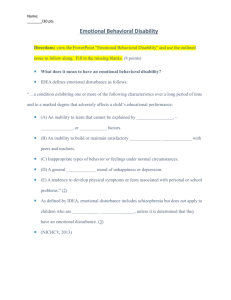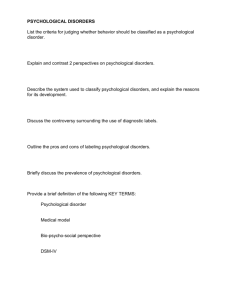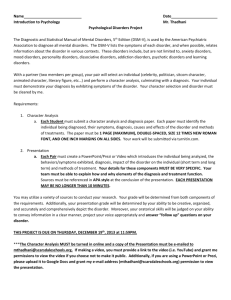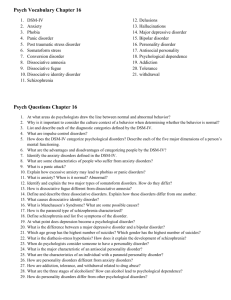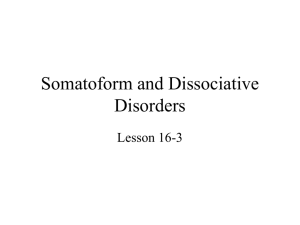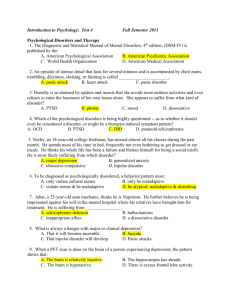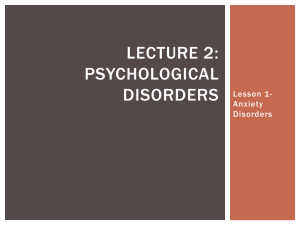STUDY GUIDE: UNIT 12 – PSYCHOLOGICAL DISORDERS AP
advertisement
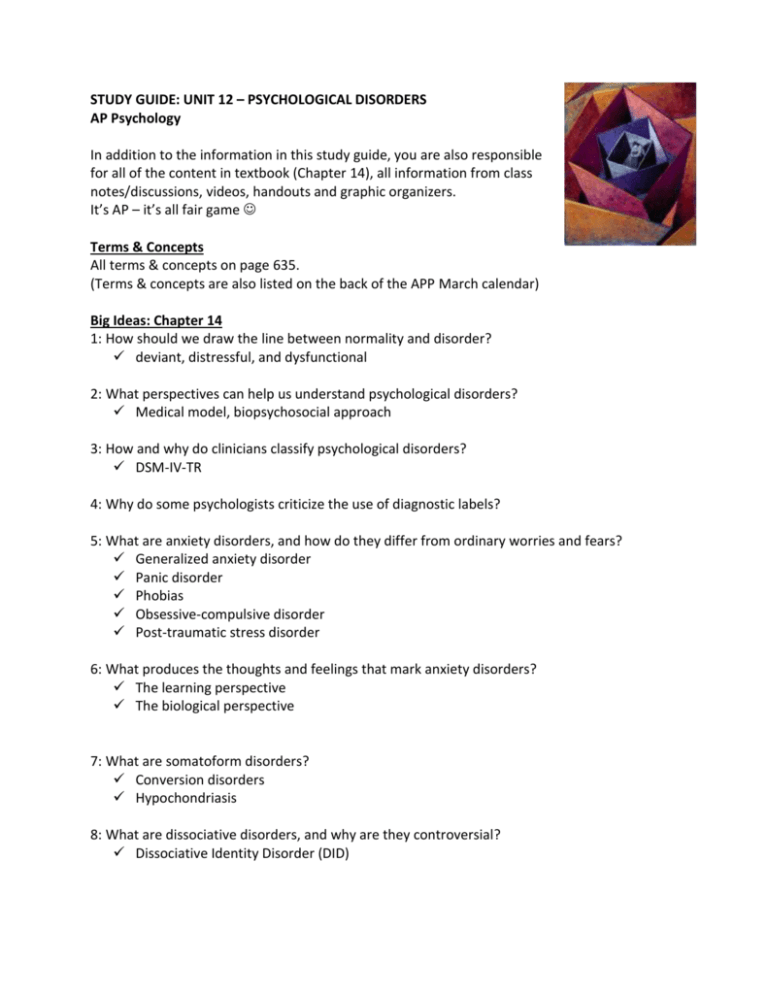
STUDY GUIDE: UNIT 12 – PSYCHOLOGICAL DISORDERS AP Psychology In addition to the information in this study guide, you are also responsible for all of the content in textbook (Chapter 14), all information from class notes/discussions, videos, handouts and graphic organizers. It’s AP – it’s all fair game Terms & Concepts All terms & concepts on page 635. (Terms & concepts are also listed on the back of the APP March calendar) Big Ideas: Chapter 14 1: How should we draw the line between normality and disorder? deviant, distressful, and dysfunctional 2: What perspectives can help us understand psychological disorders? Medical model, biopsychosocial approach 3: How and why do clinicians classify psychological disorders? DSM-IV-TR 4: Why do some psychologists criticize the use of diagnostic labels? 5: What are anxiety disorders, and how do they differ from ordinary worries and fears? Generalized anxiety disorder Panic disorder Phobias Obsessive-compulsive disorder Post-traumatic stress disorder 6: What produces the thoughts and feelings that mark anxiety disorders? The learning perspective The biological perspective 7: What are somatoform disorders? Conversion disorders Hypochondriasis 8: What are dissociative disorders, and why are they controversial? Dissociative Identity Disorder (DID) 9: What are mood disorders, and what forms do they take? Major depressive disorder Bipolar disorder 10: What causes mood disorders, and what might explain the Western world’s rising incidence of depression among youth and young adults? Biological perspective Social-cognitive perspective Suicide Depression cycle 11: What patterns of thinking, perceiving, feeling, and behaving characterize schizophrenia? Positive symptoms Negative symptoms Selective attention Hallucinations Flat affect Catatonia Chronic vs. acute 12: What causes schizophrenia? Dopamine, abnormal brain activity, abnormal brain morphology, prenatal viral infection Genetic factors Psychological factors 13: What characteristics are typical of personality disorders? Antisocial personality disorder 14: How many people suffer, or have suffered, from a psychological disorder?
